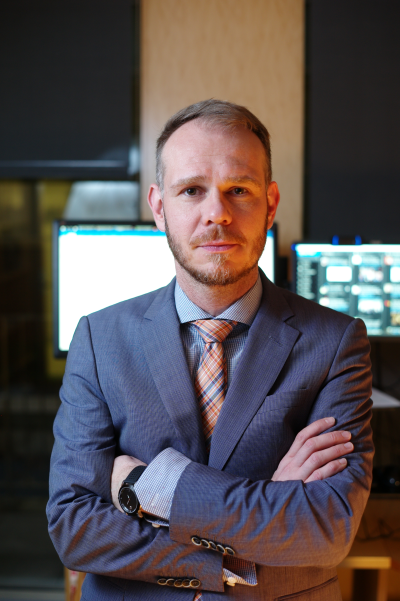Annenberg Public Policy Center visiting scholar Dietram A. Scheufele has been appointed to a committee of the National Academies of Sciences, Engineering, and Medicine that will study the wide-ranging implications of human gene editing and make recommendations for future research and practices.

The Committee on Human Gene Editing: Scientific, Medical and Ethical Considerations will seek to address some of the questions surrounding human gene editing by examining the science behind the research and its implications. The group is part of an initiative launched earlier this year by the National Academy of Sciences and National Academy of Medicine to give researchers, clinicians, policy-makers and societies a better understanding of human gene editing to help inform decision-making.
The Committee on Human Gene Editing seeks to address some of the issues related to human gene editing, such as necessary legal standards, ethical concerns, and advantages and risks of using this technology. Among the questions it will consider are:
- What is the current state of human gene editing, as well as possible future directions and challenges to future advances in this research?
- What are the potential clinical applications that may hold promise for the treatment of human diseases?
- Do current ethical and legal standards for human subjects research adequately address human gene editing, including germline editing?
Dietram A. Scheufele, Ph.D., the John E. Ross Professor in Science Communication and Vilas Distinguished Achievement Professor at the University of Wisconsin-Madison and in the Morgridge Institute for Research, is a visiting scholar at the Annenberg Public Policy Center, where he directs the program in the science of science communication. His research focuses on shaping public attitudes towards science and technology. He has previously co-chaired the National Academies’ Roundtable on Public Interfaces of the Life Sciences and the National Conference of Lawyers and Scientists.
Scheufele notes that technological advances will need to be accompanied by a wide range of policy decisions: “Many of the next steps, as far as funding, public support, and regulatory policies are concerned, will inevitably be tied to dynamics that psychology, science communication, political science and other social sciences have invaluable insights on. What do we know about how issues like this play out in media and in the political sphere? How do citizens react to the idea of synthetic DNA or ‘blurring lines between man and God?’ And how can we plan ahead for a process of responsible innovation that promotes the scientific enterprise within those societal and political realities?”
The committee is co-chaired by R. A. Charo, the Warren P. Knowles Professor of Law and Bioethics at the University of Wisconsin-Madison, and Richard O. Hynes, the Daniel K. Ludwig Professor for Cancer Research at the Massachusetts Institute of Technology. The group will begin meeting in December and will eventually issue a report with findings and recommendations to provide a framework for developing guidelines for human gene editing.


